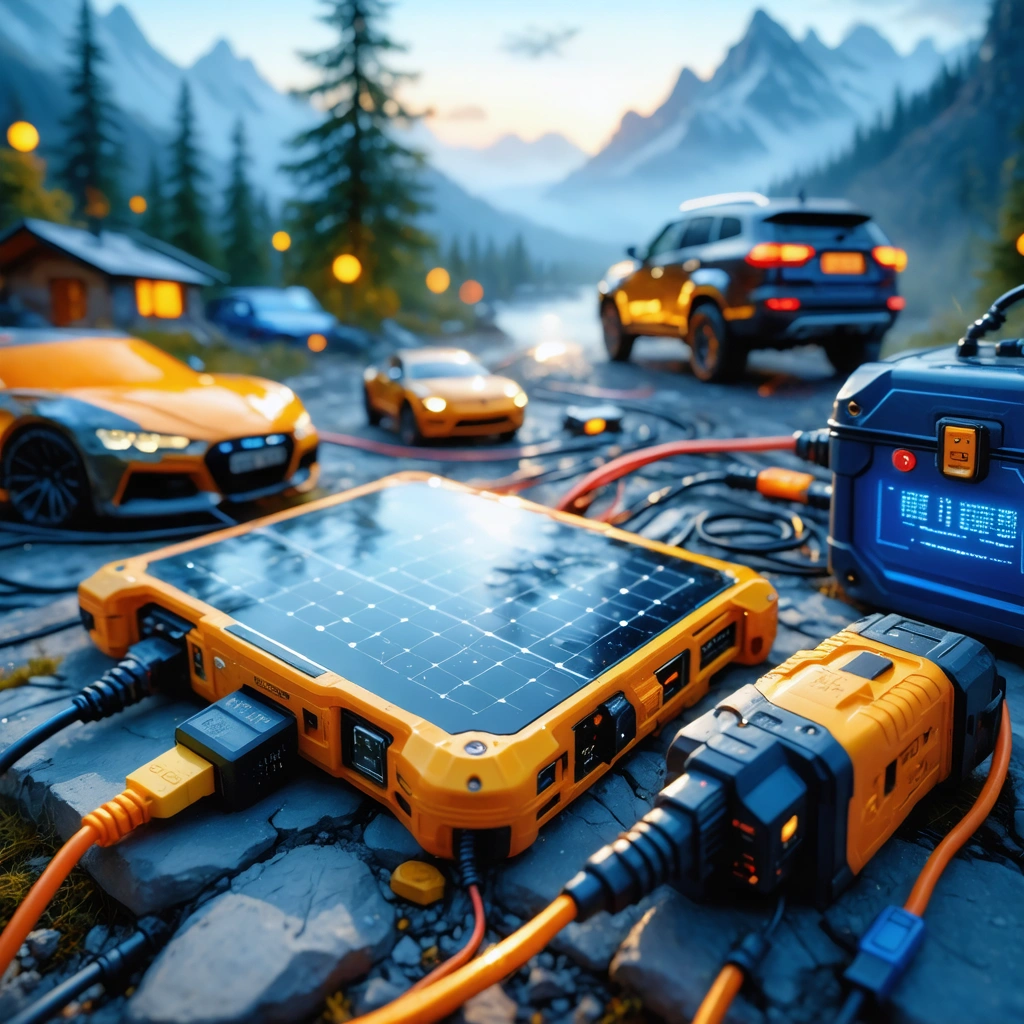
Introduction to Off-Grid Energy Challenges
The modern world is increasingly reliant on continuous access to power. However, when traveling to remote locations or attending off-grid events and expos, the luxury of instant power is often a challenge. The situation becomes even more intricate when the pressure of maintaining business networks, ensuring device uptime, and staying connected all converge in a single place. At an off-grid expo, the imperative to find a reliable charging solution becomes not only a matter of convenience, but also a strategic business need.
This article explores the key challenges and strategic approaches to managing charging needs in off-grid environments. We will delve into the practical considerations, innovative technologies, and planning methodologies that can empower businesses and individuals in similar situations. In doing so, the reader will gain insights into:
- The unique challenges faced at off-grid expos
- Innovative charging and power management solutions available
- Strategies for successful event planning and resource allocation
- Business best practices and contingency planning for energy needs
Understanding the Off-Grid Environment
Defining Off-Grid and Its Implications
An off-grid environment typically implies a location without immediate access to traditional power infrastructures. For many event organizers and participants, this means relying on alternative energy sources such as solar panels, wind turbines, or portable generators. The absence of conventional energy supply challenges the conventional wisdom of continuous connectivity and necessitates the adoption of smart power management solutions.
For businesses operating at off-grid expos, continuous access to power is crucial. They must plan ahead, ensuring that all critical devices—from laptops and smartphones to presentation equipment—remain charged and operational throughout the day. The dynamics of such events often demand robust backup systems and real-time monitoring of energy reserves.
Innovative Technologies and Charging Solutions
Renewable Energy Options
Renewable energy solutions have emerged as a cornerstone for powering off-grid locations. With advancements in photovoltaic technology, solar panels have become lighter, more efficient, and easier to deploy in remote areas. The integration of solar charging stations at expos is a growing trend, reducing the reliance on fossil fuels and enhancing sustainability. Key benefits of these solutions include:
- Portability and ease of setup
- Reduced environmental impact
- Cost effectiveness over long-term usage
Businesses are now investing in portable solar generators and battery packs that quickly charge devices even in less than ideal weather conditions. These renewable systems are often supplemented with wind or hydro energy sources where feasible, creating a balanced and sustainable approach to energy distribution.
Advanced Battery Technologies
Beyond renewable generation, improvements in battery technology have revolutionized the way off-grid events manage power. Lithium-ion batteries and other advanced storage systems offer high energy density, rapid charging capabilities, and longer lifecycle performance. These improvements are critical to ensuring that even during periods of low renewable energy input, devices remain powered.
A typical off-grid setup may include:
- High-capacity portable batteries
- Modular energy storage systems
- On-the-go power inverters and converters
A comparative table highlighting typical energy storage options is provided below:
| Technology | Capacity | Efficiency | Operational Considerations |
|---|---|---|---|
| Solar Generators | Up to 2 kWh | 85-90% | Dependent on sunlight availability |
| Lithium-ion Batteries | Up to 5 kWh per unit | 90-95% | Require regulated temperature and optimal charging conditions |
| Wind Energy Storage Systems | Variable | 80-85% | Dependent on wind patterns and installation location |
Business Strategies for Managing Off-Grid Energy Needs
Pre-Event Planning and Resource Allocation
Successful management of off-grid power challenges begins well before the event itself. Companies must rigorously plan their energy requirements, assess potential risks, and determine the necessary backup systems. Essential steps include:
- Conducting thorough site evaluations
- Deploying pilot renewable energy tests
- Securing additional portable power resources
- Training staff in energy management best practices
The integration of energy management plans with broader event planning ensures that all technological needs are met even under variable conditions. This harmonizes logistics and energy supply, a critical aspect in ensuring the overall success of any off-grid event.
Real-Time Monitoring and Adaptive Solutions
During an off-grid expo, conditions can change rapidly. Businesses are advised to implement real-time monitoring systems that provide updates on energy levels, weather conditions, and equipment performance. Adaptive strategies may include switching between energy sources or reallocating power to priority devices. The benefits of this approach are numerous:
- Enhanced decision-making during energy shortages
- Improved safety and risk management
- Optimized utilization of renewable resources
Mobile platforms and integrated software solutions can help monitor each power component, providing data-driven insights that are vital in high-stakes environments. Such strategic responsiveness is essential for mitigating disruptions and maintaining operational integrity.
Building a Sustainable Future in Off-Grid Event Management
Evolving Technologies and Market Trends
The opportunity to charge devices at an off-grid expo goes beyond immediate practicality; it is a catalyst for innovative business models and sustainable practices. Emerging technologies continue to redefine energy reliability, influencing how companies invest in and deploy power solutions. Future trends in this sector include:
- Smart grid integration even in remote locations
- Enhanced battery recycling and sustainability initiatives
- Integration of IoT for predictive maintenance of power systems
- Collaboration between technology firms and renewable energy providers
These trends are reshaping not only energy solutions but also the broader event management landscape. Organizations that understand and adapt to these shifts gain a competitive edge, positioning them as leaders in sustainable business practices.
Conclusion: Embracing Innovation and Resilience
The challenge of finding a charge at an off-grid expo is a microcosm of the broader issues facing energy management in a rapidly evolving world. It compels businesses to innovate, invest in resilient technologies, and plan comprehensively. By integrating renewable energy solutions, advanced battery technologies, and robust pre-event strategies, companies can confidently manage power requirements in even the most challenging environments.
This business-oriented approach not only addresses the immediate needs of charging devices but also contributes to a more sustainable and efficient energy future. As off-grid events become more common, the lessons learned here stand as a blueprint for success, ensuring that connectivity and productivity remain uncompromised regardless of where the expo takes place.
In summary, businesses that adopt a forward-thinking strategy and invest in the latest charging solutions are better prepared to navigate the complexities of off-grid energy demands. The combination of technological innovation, strategic planning, and real-time adaptability will define the new standard for energy management at events worldwide.






